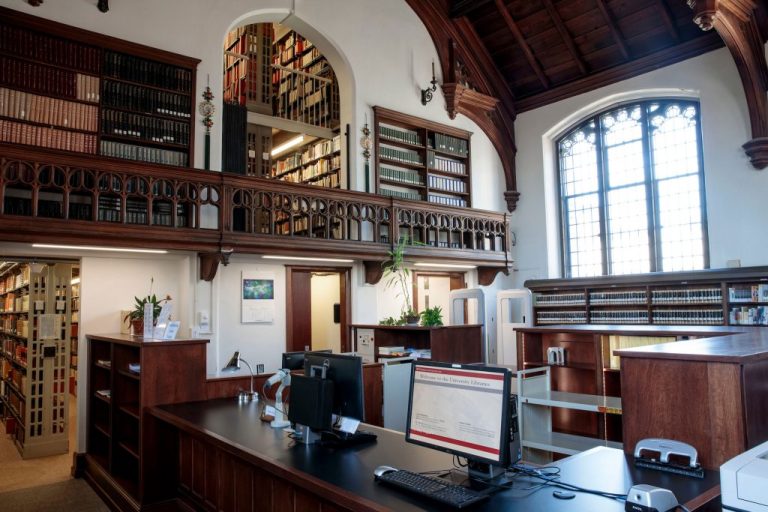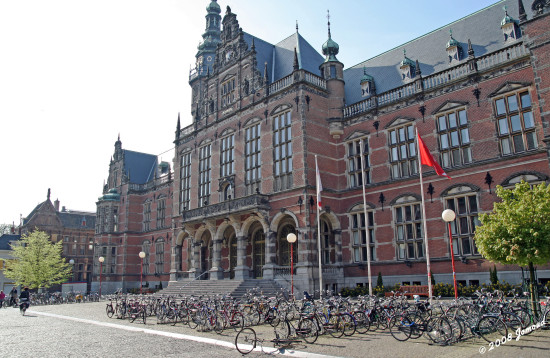Europe’s higher-education landscape is evolving. While well-known countries like the UK, Germany, and France still attract attention, a different trend is transforming student mobility: smaller European nations are becoming more appealing to African students. These countries offer quality degrees, lower costs, clear pathways to part-time jobs, and more accessible admissions. For Nigerian students, this shift means lower tuition, less competition for spots, practical options after graduation, and a generally high standard of living.
Here are seven smaller to mid-sized European countries that have become realistic options for Nigerian and African students. Each entry is detailed to help you decide on applications, preparation, budgeting, and the student visa process from Nigeria.
Hungary
Hungary sits in the heart of Europe and offers a vibrant lifestyle, rich cultural scene, and strong universities. Budapest is a lively city for students with relatively low rent compared to Western Europe. The city has many international programs taught in English and an increasing number of scholarships for non-EU students. Hungary provides affordable living, good healthcare, and effective transport, all appealing for African students seeking a European education without breaking the bank.
Why Nigerians Choose Hungary
- Affordable tuition and living costs compared to Western Europe.
- English-taught bachelor’s and master’s programs in medicine, dentistry, engineering, and business.
- Active recruitment of international students. Hungarian universities simplify admissions compared to the oversubscribed Western programs.
- Easier travel within the EU for internships or conferences.
Top universities and strengths
- Eötvös Loránd University (ELTE), Budapest: Strong in humanities, natural sciences, and math.
- Semmelweis University, Budapest: One of the best medical schools in Central Europe; attracts many international students for MBBS programs.
- University of Debrecen: Excellent programs in medicine, pharmacy, and engineering; many courses are taught in English.
- Budapest University of Technology and Economics (BME): Engineering and IT.
- Corvinus University: Business, economics, and management.
Tuition & Cost of Living
- Medicine / MBBS (private or tuition-based English tracks): ₦3.5m–₦9.5m per year (varies by program and university).
- Bachelor’s in humanities/business/engineering: ₦900k–₦2.8m per year.
- Monthly living (Budapest, student shared housing): ₦130k–₦250k (rent, utilities, food, local transport).
- Monthly living (smaller cities): ₦90k–₦160k.
- Budget for an initial arrival fund of ₦350k–₦800k to cover deposits and the first month.
Visa process
Visa type: National D-type (long-term) student/residence permit.
Steps:
- Secure unconditional admission and pay any required deposit.
- Obtain the university’s official letter of acceptance and support documents (often called the confirmation of enrollment).
- The university issues documents needed for your residence permit (often a pre-approval/letter for visa).
- Book a visa appointment at the Hungarian Embassy/Consulate serving Nigeria (usually centralized in a regional hub check the embassy in Abuja for current procedures).
- Submit your application for the long-term student visa or national visa.
- Attend biometric capture and interview if required.
- Pay the consular fee.
- Upon arrival in Hungary, register your residence at the local immigration office and convert your entry visa to a residence permit if necessary.
Typical documents required:
- Passport (valid for 6+ months).
- Acceptance letter.
- Proof of accommodation.
- Proof of funds (bank statements showing at least 1 year’s tuition and living costs or scholarship confirmation).
- Medical insurance.
- Police clearance.
- Passport photos.
- Completed visa form.
- Proof of paid fees.
Student life & tips for Nigerians
Budapest has an active Nigerian and African community with churches, student groups, and restaurants. Learn some basic Hungarian phrases, but don’t worry English is widely spoken on campus. For MBBS students, plan early for clinical rotations (language exceptions may exist for patient interactions). Use campus career offices for internship placements and keep your tax and registration paperwork organized, as employers check permits for part-time work.
Czech Republic
The Czech Republic, with Prague as its cultural center, offers prestigious, historic universities at a low cost of living. Czech universities have invested in English-taught programs, particularly in medicine, engineering, and business, making cities like Prague, Brno, and Olomouc student-friendly.
Why Nigerians Choose the Czech Republic
- World-class training in medicine and technology at relatively low cost.
- Cultural opportunities and easy travel across central Europe.
- Recognized degrees throughout the EU with good work placement prospects.
- Simple admissions for many international programs.
Top universities and strengths
- Charles University (Prague): Long history, top medical and biomedical faculties.
- Czech Technical University (CTU), Prague: Engineering and architecture.
- Masaryk University (Brno): Medicine and science.
- Czech University of Life Sciences (Prague): Agri-sciences and environmental studies.
- University of Economics, Prague (VŠE): Business and management.
Tuition & Cost of Living
- Medicine: ₦3.5m–₦7m per year for English tracks.
- Engineering/Business: ₦900k–₦2.4m per year.
- Monthly living (Prague): ₦150k–₦300k (shared apartment, transport, food).
- Smaller cities (Brno/Olomouc): ₦100k–₦180k monthly.
Visa process
Visa type: Long-term visa for study/residence permit for study.
Steps:
- Obtain the acceptance letter and enrollment confirmation from the university.
- Apply for a Czech long-term visa for the purpose of study at the Czech Embassy.
- Submit documents including proof of financial means (bank statements or sponsor letter), health insurance, accommodation confirmation, police certificate, and medical certificate if required.
- Pay fees.
- Enter the Czech Republic, register at the Foreign Police, and obtain your residence permit card.
Key documents:
- Passport.
- Acceptance letter.
- Proof of funds (often bank statements covering tuition and living costs).
- Accommodation confirmation.
- Valid travel insurance.
- Passport photos.
- Application form.
- Fee receipt.
- Criminal record check.
Student life & tips for Nigerians
- Prague and Brno are vibrant student cities with good nightlife and active expat groups.
- Winters are cold, so pack accordingly.
- For clinical students, check language requirements for patient interactions.
- Budget wisely, city center rents are higher, look for shared student housing or university dorms.
Poland
Poland is budget-friendly and has emerged as a top European choice for international students. Cities like Warsaw, Kraków, and Wrocław mix historic charm with dynamic economies and growing English-language programs in medicine, engineering, and business.
Why Nigerians Choose Poland
- Low tuition and living costs compared to Western Europe.
- Recognized medical programs and courses suitable for international practice (check licensing).
- Expanding scholarship programs and English-medium courses.
- Good job market after graduation in IT, manufacturing, and services.
Top universities and strengths
- Jagiellonian University (Kraków): Medical and Arts.
- University of Warsaw: Social sciences and Research.
- Warsaw University of Technology: Engineering.
- Wrocław Medical University: Medicine and Dentistry.
- AGH University of Science and Technology (Kraków): Mining, Metallurgy, and Engineering.
Tuition & Cost of Living
- Medicine: ₦3m–₦7m per year for English programs.
- Other degrees: ₦700k–₦2.2m per year.
- Monthly living (Kraków/Warsaw): ₦120k–₦260k.
Visa process
Visa type: National D visa or temporary residence permit for study.
Steps:
- Secure admission and confirm enrollment.
- Apply at the Polish Embassy/Consulate relevant to Nigeria for a national visa.
- Provide required paperwork including acceptance letter, proof of funds, accommodation, travel health insurance, passport.
- After arrival, register with the local Voivodeship Office for a temporary residence permit.
Documents usually required:
- Passport.
- Acceptance/enrollment.
- Completed visa form.
- Recent bank statements.
- Proof of accommodation.
- Health insurance.
- Photographs, and any university-specific confirmations.
Student life & tips for Nigerians
Poland has a lively international student scene and many affordable university dorms. Knowing Polish helps with part-time work in services, so consider taking short language courses. Medical students should verify whether additional exams are required for practicing in other countries.
Finland
Finland is known for its progressive education system, strong research focus, and high quality of life. Finnish universities attract international students with research programs, English-taught master’s degrees, and a reputation for innovation and safety.
Why Nigerians Choose Finland
- Strong research and innovation, especially in STEM, environmental science, and edtech.
- High living standards and safe campuses.
- Post-study work options and pathways to residency through employment.
Top universities and strengths
- University of Helsinki: Broad research capability.
- Aalto University: Technology, business, and design.
- Tampere University: Engineering and social sciences.
- University of Turku: Medicine and life sciences.
- University of Oulu: ICT and wireless technology.
Tuition & Cost of Living
- Tuition (for non-EU students): ₦1.8m–₦4.5m per year for many master’s programs (varies by program).
- Monthly living: ₦300k–₦500k, depending on the city and lifestyle.
Visa process
Visa type: Residence permit for studies (applied before arrival).
Steps:
- Obtain an acceptance letter and pay any required tuition deposit.
- Apply for a residence permit for studies through the Finnish Immigration Service (online).
- Book an appointment at the Finnish embassy or consulate handling Nigeria for biometric submission.
- Submit proof of sufficient funds (bank statements or scholarship), health insurance, and housing arrangements.
- Upon arrival, register with local authorities and attend orientation.
Documents typically required:
- Passport.
- Acceptance letter.
- Proof of tuition payment or scholarship.
- Bank statements showing sufficient funds
- Health insurance.
- Accommodation proof.
- Passport photos.
Student life & tips for Nigerians
Finnish winters can be cold and dark, so plan your wardrobe and mental health strategies. Universities provide strong support for international students and career services; language courses are beneficial as Finnish (or Swedish in some areas) can help with local job opportunities. Finland is safe and tech-oriented, making it a great option for entering Nordic tech markets after graduation.
Norway
Norway’s public universities offer high-quality education with strong research and generous support for students. While tuition for non-EU students may apply in some programs, Norway’s welfare model and English-taught master’s programs attract many international candidates.
Why Nigerians Choose Norway
- High living standards and strong social safety nets.
- Strong programs in energy, environment, and marine sciences.
- Part-time work opportunities with good labor standards.
Top universities and strengths
- University of Oslo (UiO): Research and humanities.
- Norwegian University of Science and Technology (NTNU): Engineering and technology.
- University of Bergen: Marine sciences and medicine.
- UiT The Arctic University of Norway: Arctic and environmental research.
Tuition & Cost of Living
- Tuition: Many public universities have no fees for international students at the bachelor’s and master’s levels. The fees for master’s programs may range from ₦1.2m–₦4m per year.
- Living: Norway can be expensive so you should expect to pay ₦500k–₦900k per month in Oslo. Costs are lower in smaller towns.
Visa process
Visa type: Student residence permit.
Steps:
- Get accepted to a recognized Norwegian institution.
- Apply for a student residence permit through the Norwegian Directorate of Immigration (UDI) before travel.
- Provide proof of funds (savings or scholarship) and health insurance.
- After arrival, register with local police or immigration as required.
Documents typically required:
- Passport.
- Acceptance letter.
- Proof of financial means covering living costs.
- Accommodation proof.
- Health insurance.
- Passport photos.
Student life & tips for Nigerians
Norway is safe and provides strong support for students. The nightlife here is quieter compared to southern Europe; the outdoor lifestyle and access to nature are major benefits. Learning some Norwegian can enhance local job opportunities. Be mindful of budgeting, especially for heating and travel during the winter.
Portugal
Portugal is a friendly and affordable option in Europe. It offers mild weather and many programs in English. The country has a growing number of international students, and its universities in Lisbon, Porto, and Coimbra combine history with modern learning.
Why Nigerians Choose Portugal
- Lower costs compared to Western European countries.
- English-language master’s and bachelor’s programs.
- A welcoming environment for international students and easier integration into Portuguese society.
Top universities and strengths
- University of Lisbon has extensive research and modern programs.
- University of Porto focuses on engineering, business, and life sciences.
- University of Coimbra is known for its historic significance and academic excellence.
- NOVA University Lisbon specializes in social sciences and economics.
- ISCTE- Instituto Universitário de Lisboa offers management and public policy courses.
Tuition & Cost of Living
- Tuition ranges from ₦1.2m to ₦3.5m per year, depending on the program and institution.
- Monthly living costs range from ₦180k to ₦350k, with Lisbon being on the higher end.
Visa process
Visa type: Temporary residence visa for study, followed by a residence permit.
Steps:
- Secure admission and pay any required deposits.
- Apply for the study visa at the Portuguese Embassy responsible for Nigeria.
- Provide proof of admission, bank statements, health insurance, and accommodation proof.
- Upon arrival, register with SEF (Portuguese Immigration and Borders Service) for a residence card.
Documents usually required:
- Passport.
- Acceptance letter.
- Proof of funds.
- Accommodation details.
- Health insurance.
- Criminal record check.
- Passport photos.
- Visa fee.
Student life & tips for Nigerians
Portugal’s climate and relaxed culture suit many Nigerians. Learning Portuguese helps with daily life and finding part-time jobs; consider beginner classes. Student associations and diaspora groups are active in Lisbon and Porto.
Greece
Greece provides affordable higher education, especially in humanities, archaeology, marine sciences, and tourism management. Its strong exchange and Erasmus programs make it an ideal place for Mediterranean studies and travel.
Why Nigerians Choose Greece
- Low living costs and tuition at many public institutions.
- Rich opportunities for cultural and historical studies, like archaeology and maritime studies.
- Postgraduate programs taught in English for international students.
Top universities and strengths
- National and Kapodistrian University of Athens emphasizes arts and sciences.
- Aristotle University of Thessaloniki focuses on engineering and natural sciences.
- University of Crete is known for research and life sciences.
- Panteion University offers studies in social and political sciences.
- Athens University of Economics and Business (AUEB) focuses on economics and business.
Tuition & Cost of Living
- Tuition at public universities is often low-cost or free for some programs. Private or international programs range from ₦800k to ₦2.5m per year.
- Monthly living costs range from ₦120k to ₦260k, with Athens being on the higher end.
Visa process
Visa type: National long-stay visa for study or residence permit for studies.
Steps:
- Obtain acceptance from a Greek university.
- Apply for a national study visa at the Greek Embassy or Consulate responsible for Nigeria.
- Provide proof of acceptance, funds, housing arrangements, health insurance, and a criminal record check.
- After arriving, register for a residence permit at the local Aliens & Immigration Department.
Documents typically required:
- Passport
- Acceptance letter
- Proof of funds
- Accommodation confirmation
- Health insurance
- A criminal record extract.
Student life & tips for Nigerians
Greece has a warm climate and a friendly culture; food and living expenses are affordable. For fieldwork in archaeology or marine studies, be prepared for travel and plan ahead. Learning basic Greek can help in hospitality jobs and everyday life.
Practical advice for Nigerian applicants
- Start early: Applications, document legalization, and visa bookings can take weeks. Begin at least 6 to 9 months before the intake.
- Authenticate documents: Many universities and embassies require notarized and apostilled or trans-legalized diplomas and transcripts from Nigeria’s Ministry of Foreign Affairs. Allow time and budget for this.
- Proof of funds: Most student visas require showing tuition plus 6 to 12 months of living costs in a bank account or through sponsor letters. Save accordingly.
- Medical requirements and vaccinations: A yellow fever vaccination is commonly needed; some countries may require chest X-rays or other health checks.
- Scholarships and waivers: Don’t overlook country or university scholarships; they can make moving more affordable.
- Work while studying: Check the allowed hours for part-time work on your student visa, as it can help manage your budget.
- Community: Join Nigerian or African student associations early for help with housing, remittances, and cultural support.
For Nigerian students looking for affordable, quality, and career-focused education in Europe, smaller countries like Hungary, the Czech Republic, Poland, Finland, Norway, Portugal, and Greece are becoming strong options. They offer recognized degrees, easier visa processes, lower tuition fees, and welcoming academic communities that embrace African talent.
These countries also provide a mix of cultural richness, safety, and a good work-life balance that helps with long-term success during and after studies. If you aim to have a career in medicine, engineering, technology, or the arts, studying in these places offers professional advantages and personal development.
For Nigerians, this is not just about studying abroad. It’s about making a smart move, gaining international experience, and positioning oneself in a connected world where education serves as a steppingstone to new opportunities. Europe’s smaller nations may not always receive much attention, but they are quietly shaping the next generation of African global professionals.





Leave a Comment